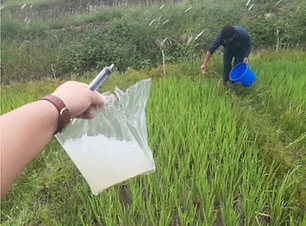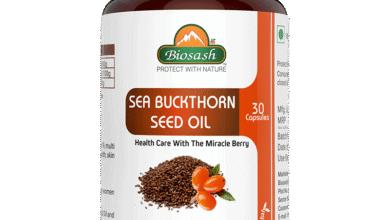
Probiotic Farming: Revolutionizing Agriculture with Microbiome Solutions
In today’s agricultural landscape, sustainability and soil health are more important than ever. Probiotic Farming is emerging as a powerful method to restore soil vitality, improve crop yields, and reduce dependency on chemical inputs. At Microbiome, we believe in transforming farming practices through innovative, natural, and sustainable approaches.
This blog will explore how probiotic farming works, its benefits, and why it’s a game-changer for the future of agriculture.
What is Probiotic Farming?
Probiotic farming involves introducing beneficial microorganisms into the soil or onto plants to create a healthier growing environment. Just like probiotics support human gut health, they help soil ecosystems thrive by promoting microbial balance.
These natural microbes boost nutrient cycling, increase resistance to pests and diseases, and improve plant health—all without synthetic fertilizers or pesticides.
Why Choose Probiotic Farming?
The global shift toward organic and sustainable farming is accelerating, and probiotic farming fits perfectly into this movement. Here’s why more farmers are adopting this method:
1. Improved Soil Structure
Probiotics help develop rich, porous soil that retains moisture better and resists erosion. Microorganisms break down organic matter, creating humus and boosting fertility.
2. Higher Crop Yield and Quality
By creating a balanced soil environment, crops absorb nutrients more effectively. This leads to improved growth rates, better resistance to environmental stress, and enhanced flavor and nutrition.
3. Reduced Chemical Dependency
With robust soil Microbiome, there’s less need for synthetic fertilizers, pesticides, and herbicides. This leads to lower input costs and more environmentally friendly practices.
4. Restored Soil Health
Years of chemical farming have degraded soils. Probiotic farming revitalizes depleted land, promoting long-term productivity and ecological balance.
How Microbiome Supports Probiotic Farming
At Microbiome, we provide science-backed solutions that make implementing probiotic farming easy and effective. Our products contain live beneficial microbes specifically formulated to target the needs of modern farms.
✅ Tailored Microbial Blends
Each crop and soil type is different. That’s why our formulations are customized to match specific agricultural environments for optimal impact.
✅ Easy Application
Our probiotic solutions can be applied through irrigation systems, seed treatment, or foliar sprays—making it convenient for both small and large farms.
✅ Proven Results
Farmers who switch to probiotic farming with Microbiome report improved soil health within weeks, along with visible enhancements in plant vigor and root development.
Transitioning to Probiotic Farming: Step-by-Step Guide
Interested in making the shift to probiotic farming? Here’s how to get started:
Step 1: Soil Analysis
Understand your soil profile and identify deficiencies. A proper assessment helps tailor the right probiotic treatment.
Step 2: Choose the Right Product
Consult with Microbiome experts to select the ideal microbial blend for your specific crop and climate conditions.
Step 3: Apply Probiotics
Introduce the microbes to your soil through irrigation or spraying methods. Ensure the soil remains moist for the first few days to support colonization.
Step 4: Monitor and Adjust
Track improvements in soil structure, plant growth, and yield. Adjust dosage or frequency based on results.
The Environmental Impact of Probiotic Farming
Probiotic farming isn’t just beneficial for crops—it’s great for the planet. By enhancing soil biodiversity and reducing chemical runoff, it supports cleaner water sources and healthier ecosystems.
Farms using probiotics emit fewer greenhouse gases, contributing to climate change mitigation. Additionally, these practices preserve pollinator populations, which are essential for global food security.
Common Misconceptions About Probiotic Farming
Myth: Probiotic farming is only for organic farms.
Truth: It benefits all farms—conventional or organic—looking to improve efficiency and sustainability.
Myth: Microbes can’t replace fertilizers.
Truth: While they don’t replace all nutrients, they enhance nutrient uptake and reduce the need for chemical inputs.
Myth: It takes years to see results.
Truth: Many farmers notice significant improvements in soil and plant health within just one season.
Conclusion: A Healthier Future with Probiotic Farming
Probiotic farming is more than just a trend—it’s a shift toward smarter, more sustainable agriculture. With Microbiome’s advanced microbial solutions, farmers can rejuvenate their soils, grow better crops, and reduce environmental impact—all while increasing profitability.
Whether you’re a small-scale grower or managing large farmlands, the power of beneficial microbes can elevate your agricultural success. Start your journey with probiotic farming today and be a part of the green revolution.




